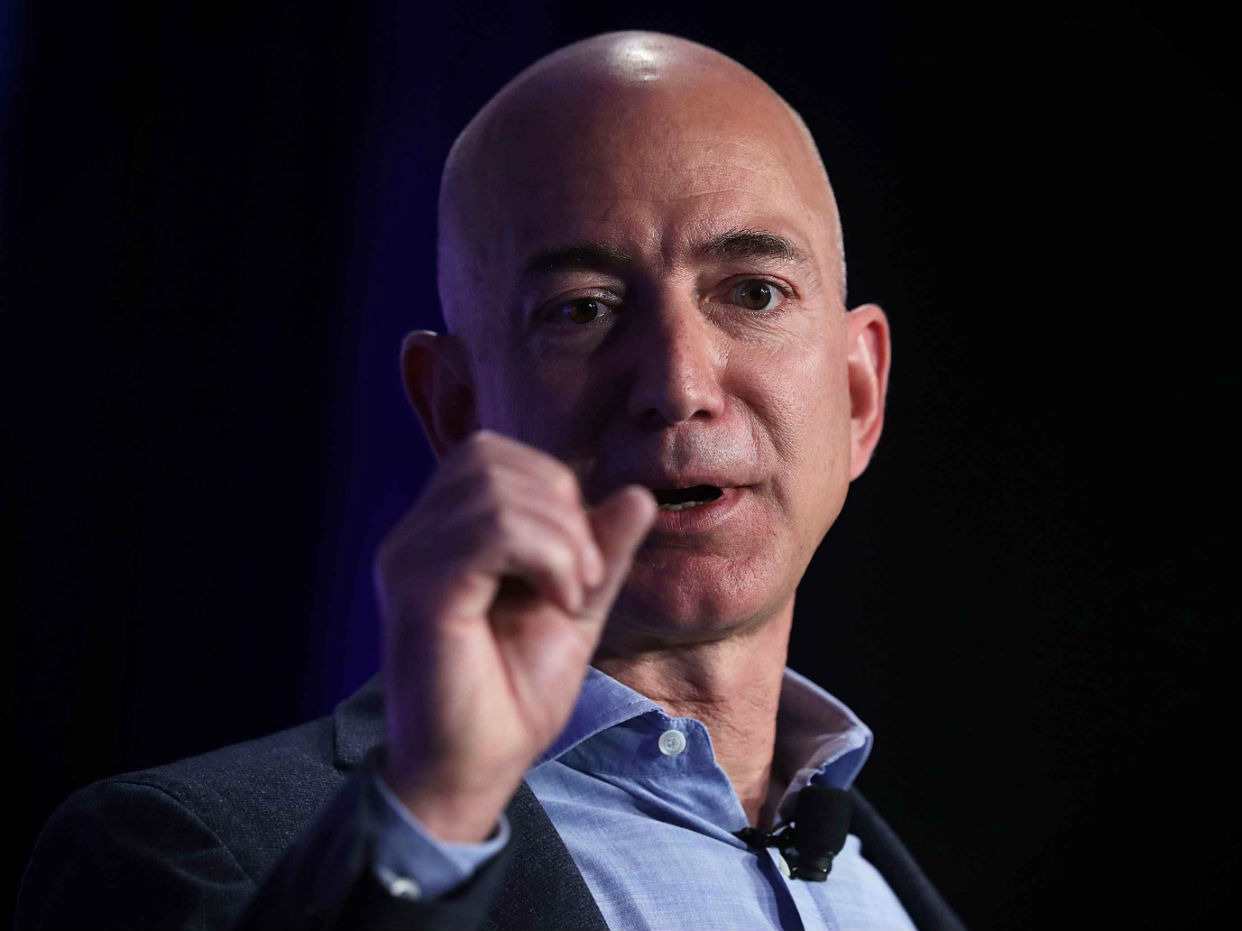Jeff Bezos accuses National Enquirer of extortion
Emails show tabloid threatening to publish ‘dick pic’ from Amazon chief

A free daily email with the biggest news stories of the day – and the best features from TheWeek.com
You are now subscribed
Your newsletter sign-up was successful
Billionaire Amazon founder and chief executive Jeff Bezos has accused an American tabloid newspaper of blackmail and extortion, over the publication of private texts and intimate images.
Bezos claims that American Media Inc (AMI), which publishes the National Enquirer, and its chief executive David Pecker threatened to publish the text messages and images if Bezos didn’t halt an investigation into how AMI obtained the material, CNN reports.
Bezos also claimed that earlier reporting of his private life by the tabloid was “politically motivated”, due to his ownership of the Washington Post, which has published a series of articles critical of Pecker, and Donald Trump, who counts Pecker as a close ally.
The Week
Escape your echo chamber. Get the facts behind the news, plus analysis from multiple perspectives.

Sign up for The Week's Free Newsletters
From our morning news briefing to a weekly Good News Newsletter, get the best of The Week delivered directly to your inbox.
From our morning news briefing to a weekly Good News Newsletter, get the best of The Week delivered directly to your inbox.
In a lengthy blog post on Medium, Bezos said that the National Enquirer’s chief content officer Dylan Howard wrote to him, outlining what the images contained, including one that Howard described as a “below the belt selfie — otherwise colloquially known as a ‘d*ck pick’”.
The Washington Post reports that the text messages “revealed his relationship with former TV anchor Lauren Sanchez”. Bezos and his wife, MacKenzie announced last month they were getting divorced.
“It would give no editor pleasure to send this email. I hope common sense can prevail — and quickly,” the email read.
“No real journalists ever propose anything like what is happening here: I will not report embarrassing information about you if you do X for me. And if you don’t do X quickly, I will report the embarrassing information,” Bezos wrote.
A free daily email with the biggest news stories of the day – and the best features from TheWeek.com
A lawyer for AMI, Jon Fine, later proposed that Bezos release a “mutually agreed upon statement to a news outlet saying that he had no basis for suggesting AMI’s coverage was politically motivated” in exchange for not publishing the messages and images, Bloomberg reports.
-
 Colbert, CBS spar over FCC and Talarico interview
Colbert, CBS spar over FCC and Talarico interviewSpeed Read The late night host said CBS pulled his interview with Democratic Texas state representative James Talarico over new FCC rules about political interviews
-
 The Week contest: AI bellyaching
The Week contest: AI bellyachingPuzzles and Quizzes
-
 Political cartoons for February 18
Political cartoons for February 18Cartoons Wednesday’s political cartoons include the DOW, human replacement, and more
-
 Will increasing tensions with Iran boil over into war?
Will increasing tensions with Iran boil over into war?Today’s Big Question President Donald Trump has recently been threatening the country
-
 Corruption: The spy sheikh and the president
Corruption: The spy sheikh and the presidentFeature Trump is at the center of another scandal
-
 Rubio boosts Orbán ahead of Hungary election
Rubio boosts Orbán ahead of Hungary electionSpeed Read Far-right nationalist Prime Minister Viktor Orbán is facing a tough re-election fight after many years in power
-
 Greenland’s capital becomes ground zero for the country’s diplomatic straits
Greenland’s capital becomes ground zero for the country’s diplomatic straitsIN THE SPOTLIGHT A flurry of new consular activity in Nuuk shows how important Greenland has become to Europeans’ anxiety about American imperialism
-
 Epstein files topple law CEO, roil UK government
Epstein files topple law CEO, roil UK governmentSpeed Read Peter Mandelson, Britain’s former ambassador to the US, is caught up in the scandal
-
 Iran and US prepare to meet after skirmishes
Iran and US prepare to meet after skirmishesSpeed Read The incident comes amid heightened tensions in the Middle East
-
 Which way will Trump go on Iran?
Which way will Trump go on Iran?Today’s Big Question Diplomatic talks set to be held in Turkey on Friday, but failure to reach an agreement could have ‘terrible’ global ramifications
-
 Israel retrieves final hostage’s body from Gaza
Israel retrieves final hostage’s body from GazaSpeed Read The 24-year-old police officer was killed during the initial Hamas attack